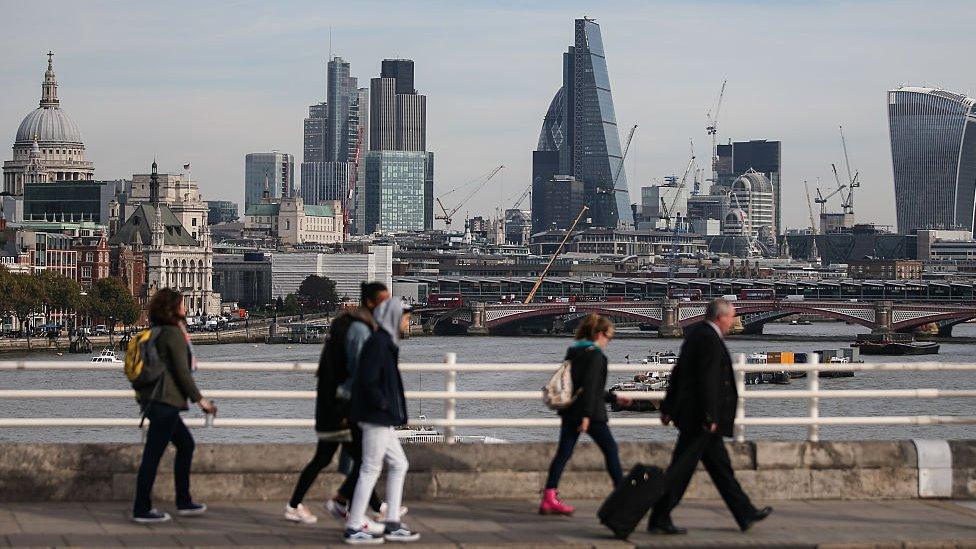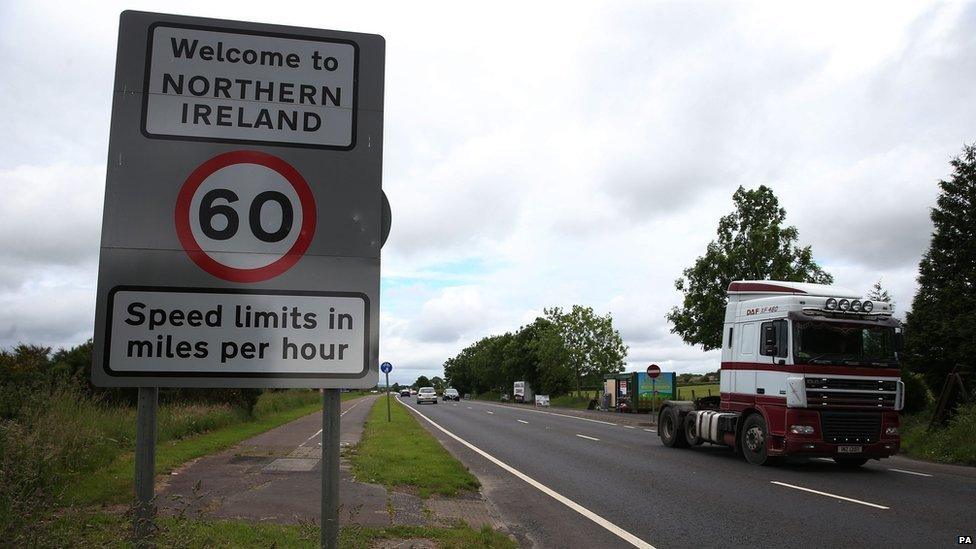Florence - a warning from history
- Published

A transition deal deal won't stop some financial firms carrying through Brexit contingency plans
"It's too late. The emergency glass has been broken and the button has been pressed."
That was what one senior financier told me at a recent dinner when I asked him about his Brexit contingency plans.
It was a view widely shared around a table of banking, insurance and private equity top brass.
The majority of the fifteen or so said they were planning for a no deal, no transition, cliff-edge scenario.
"It's the only sensible thing we can do given the progress made so far," said another.
Most did not even think there was time to negotiate the terms of a transition deal, and even if there was, it would not stop them carrying through with their contingency plans.
Last chance saloon
The industry group that represents these people, TheCityUK, is calling on the government to agree an off-the-shelf, whole economy, status quo transition deal urgently, and tell me there is a strong feeling among members that Theresa May's speech in Florence, and the next round of negotiations, will be the last chance to agree a damage-limiting deal.
It is perhaps unsurprising that the warnings from an industry lobbying group are getting more shrill as time slips by.

Once upon a time, Florence was the financial capital of Europe
They are paid by their members to do the complaining about government that they can't do in public themselves.
What is more surprising is the level of resignation in private among the financial community that contingency plans cannot and will not now be reversed.
Repercussions
So far, the publicly disclosed number of financial services jobs to move from the UK is just under 10,000.
That is under 3% of the total number of people employed in finance in London and around 1% of those employed in the UK as a whole.
Hardly an exodus - more of a trickle, and I am often reminded on social media that there are many people in the country who would happily give a few departing bankers a lift to the airport.
But any erosion of a sector that accounts for 8% of GDP, 12% of all tax and 29% of all exports will have repercussions for the wealth and health of the nation.
The prospect of a no-deal Brexit is considered a contributing factor to a decline in prime London residential values of 10% in some areas and construction experts are predicting a decline in new commercial building (although that decline hasn't shown up in the data so far).
As one chief executive told me, "we are placing a few buckets around Europe, we will pour a little now - and then we can add to it if we need over time.
There will be no flood but you know a persistent leak can damage the value of any property".
Domestic pull
There is an important caveat to these dread warnings.
Around the table, not one of my dinner companions wanted to leave the UK.
A lot is made of the mobility of global capital - but global capital doesn't have partners, kids and lifestyles they like.
That is why there will be no exodus. No one really wants to go and no alternative destination could accommodate them even if they wanted to. This is not about day one - its about year ten.
Once upon a time, Florence was the financial capital of Europe.
Five hundred years later it is London. Groups that represent the modern equivalent are warning London faces a long term decline in its pre-eminent position unless it acts now.
Even if the government heeds today's call to action and agrees a transition deal quickly, many in the financial services industry feel it is getting a bit late to fix the roof.
- Published20 September 2017

- Published21 September 2017

- Published20 September 2017
